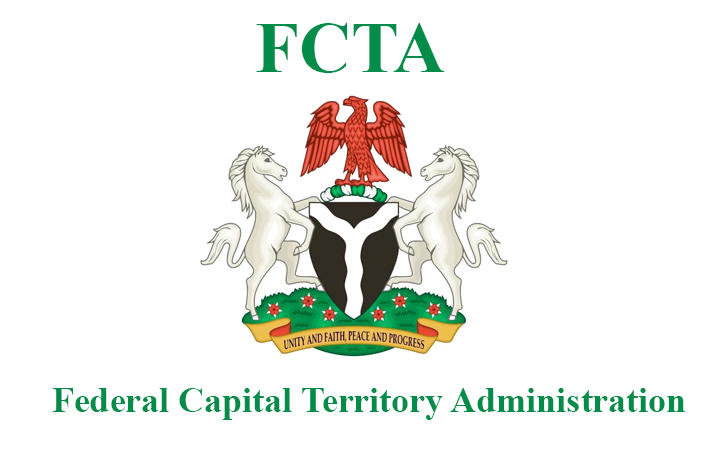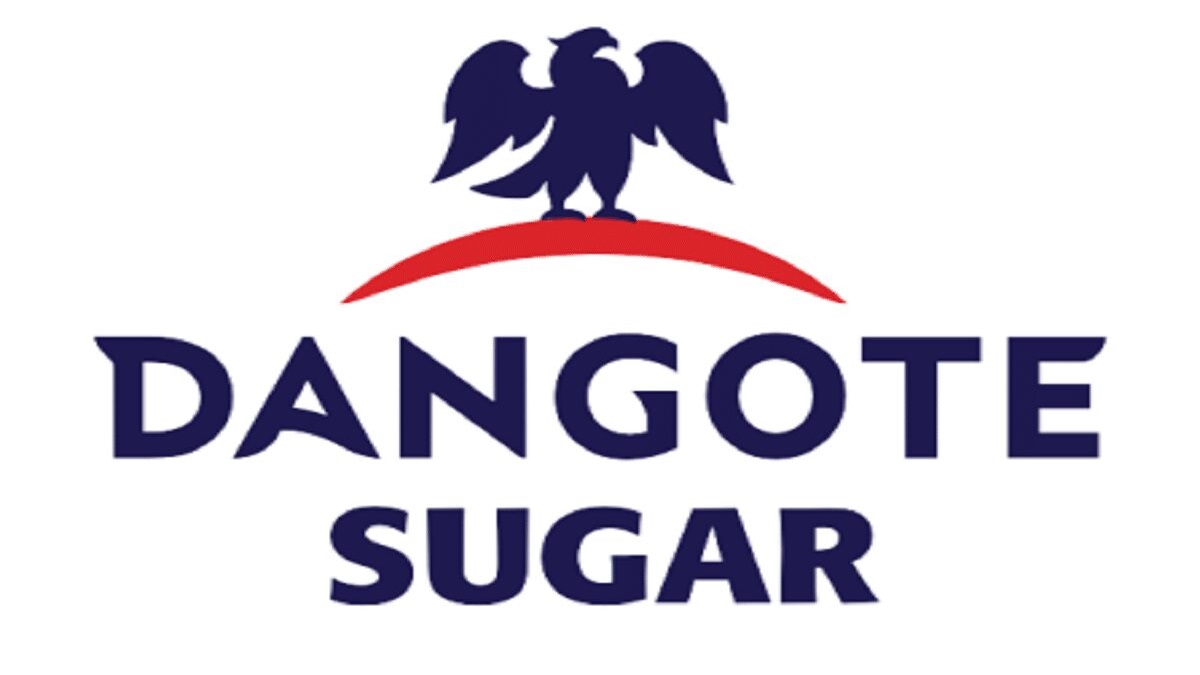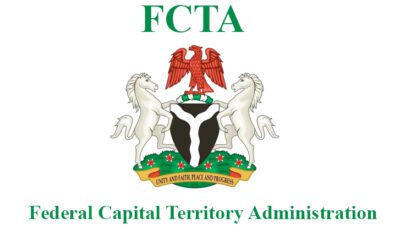News
FCTA mobilises stakeholders, law enforcements to strengthen fight against GBV

The Federal Capital Territory Administration (FCTA) has urged stakeholders and law enforcement agencies to strengthen the fight against Gender-Based Violence (GBV) in the territory.
Dr Adedayo Benjamins-Laniyi, the Mandate Secretary, Women Affairs Secretariat, FCTA, made the call during a meeting with stakeholders and representatives of law enforcement agencies on Saturday in Abuja.
Benjamins-Laniyi stressed the need for strong collaboration among stakeholders and law enforcement agencies to win the war against GBV.
The mandate secretary also called for stringent punishment for convicted sexual offenders to serve as a deterrent to other offenders.
“We need to work together as government agencies, law enforcement agencies, Civil Society Organisations, Community-Based Organisations and other Non-Governmental Organisations and religious groups to curb GBV in our communities.
“I urge all of you to contribute your expertise and professionalism in combating GBV in the FCT.
“FCTA is open for collaboration and partnership with relevant stakeholders and government agencies so that we will all be on the same page.
“This is very crucial to winning the war against GBV in FCT,” she said.
Also, the Disability Desk Officer in the secretariat, Beatrice Mube, also stressed the need to intensify the protection of persons with disabilities due to their increased vulnerability to GBV.
Mube also made a case for interpreters and sign language for the deaf and dumb to enable them to report abuse incidents to relevant authorities.
“There is also a very urgent need for ramps in public places to enable persons with disabilities access such buildings and facilities,” she said.
On her part, a Chief Superintendent of Police, Funmilayo Kolawole, said the Nigeria Police was doing the best it can to prosecute GBV offenders.
Kolawole also agreed with the mandate secretary that sex offenders deserve a higher prison sentence.
“We are ready to work, but require support from relevant stakeholders, particularly funding to boost the campaign against GBV,” the police officer said.
News
Akpabio tasks Scout Movement to inculcate ethics in Nigerian youths


The President of the Senate, Godswill Akpabio has urged the Scout Movement of Nigeria to inculcate the virtues of national ethics in Nigerian youths through its numerous programmes.
Akpabio said this in Abuja on Thursday, when the Chief Commissioner of the Scout Association of Nigeria, Mr Dave Padopads-Awunah led other executive members to pay a courtesy visit to him
Akpabio advised the association to ensure discipline in its activities as well as ensure continuous education on issues like climate change and artificial intelligence.
“I don’t know at what stage that Nigeria stopped having organisations like yours in primary and secondary schools.
“In my time, we had Scout Movements in primary and secondary schools. We even used to have the female counterpart, the Girls’ Guide.
“These movements inculcated right ethics and ethos on the young ones, getting them to know their country, the national pledge, national anthem and respect for national symbols like the national flag and currency.
“The scout movement should prepare the youths for leadership in all spheres of life and that is why the motto of the scouts be prepared appeals to me,” he said.
He added, “You should be prepared for situations that are favourable, be prepared for the rainy season and dry season; be prepared for the season of bountiful harvest and even famine.”
Akpabio extolled the virtues of the scouts movement as a disciplined organisation which should be encouraged through training and retraining on contemporary issues like climate change and artificial intelligence and pledged support of the National Assembly for their programmes.
Earlier, Awunah intimated the senate president on the forth-coming Nigeria Scout Parade and President’s Medal Awards.
He sought the collaboration of the National Assembly in executing their programmes that would be of immense benefit to Nigerian youths.
News
LCCI commends FG for suspending cybersecurity levy, seeks broader taxation


The Lagos Chamber of Commerce and Industry ( Lagos Chamber of Commerce and Industry) on Thursday commended the House of Representatives for asking CBN to suspend planned 0.5 percent cybersecurity levy due to public outcry.
The President and Chairman of the Council of LCCI, Mr Gabriel Idahosa, gave the commendation in an interview in Lagos.
Idahosa was responding to the suspension of the 0.5 percent cybersecurity levy on online transactions, which was earlier directed by CBN on Monday.
The LCCI boss, in an earlier interview, warned of backlash and called for reversal or suspension of the levy to prevent hardship.
The House of Representatives during the plenary on Thursday told CBN to withdraw the circular, which directed all banks to implement the levy two weeks after May 6.
Speaking on suspension, Idahosa said President Bola Tinubu’s administration had been a listening one, citing examples, including when it halted a policy on cash distribution.
“The Government has consistently shown their willingness to listen to the concerned public,” he said.
He also commended federal lawmakers for demonstrating their commitment to pursuit of policies accepted by the citizens, adding that policies succeed when the people and government were in agreement.
“So, we must commend the National Assembly that they are very much on the same page with Nigerians,” he said.
Idahosa, however, appealed to the federal government to expand its tax net to capture 60 percent of critical stakeholders currently excluded from taxation to raise needed revenue to run Nigeria’s economy.
He said tax reform surveys revealed that countries with fewer taxes collected more revenue to fund large sectors of their economies.
Idahosa cited South Africa as an example of the most successful tax revenue collecting country in Africa with only about 10 items of taxes where they generated enough revenue to fund all sectors.
“The unmistakable data is that the countries that have fewer taxes collect much more taxes, so they have funds for all sectors of the economy.
“They collect very large level of revenue from the main taxes, corporate taxes and income taxes and they have money for health, education, cybersecurity, for everything under the sun,” he said.
He said the practice of collecting taxes for every sector or activities in the nation should be jetisoned for the adoption of the more effective collection methods of fewer taxes capturing critical stakeholders.
He said tax collection logistics was expensive, adding that 60 percent of regular taxes in the nation were not being collected because of inadequate man manpower to handle the collections.
Idahosa said if corporate and income taxes were collected through full coverage of Nigeria, the funds would be more than enough to meet national needs.
“So, the whole idea that for everything that happens you have to collect the levy, levy for ITF for training, levy for Police Fund, levy for cybersecurity, means first of all that the cost of tax collection rises heavily.
“These collections are not cost free. You are going to set up structures, computer systems and people to monitor collections. So, the cost of collection and revenue collected per tax begins to show diminishing returns.
“Rather, government should put its energy in expanding the collection of the main taxes. Corporate income tax, personal income tax, Value Added Tax (VAT). In fact, VAT alone can provide enough resources and raise the tax revenue to the GDP of Nigeria closer to countries like South Africa that are doing extremely well.
“So, the fundamental principle is that, you don’t have to collect tax for every little thing but focus on the capacity and the efficiency and the wide reach of your primary revenue collecting agency which is the Federal Inland Revenue Service (FIRS),” he said.
According to him, more than 60 percent of the people who are supposed to pay corporate income taxes are not paying because the coverage of the FIRS has not been spread wide enough across the country.
“Outside the state capitals and a few big cities, you don’t see FIRS collecting taxes from all the companies in our sub urban areas.
“So, that is the basic principle, intensive collection from your primary revenue agency and having enough funds to meet the needs of all sectors and services in the economy,” he said.
The LCCI boss said the suspended 0.5 percent cybersecurity levy came as a surprise because the federal government had set up a committee to reduce the total number of taxes in Nigeria.
He explained that there were about 100 different kinds of taxes being paid by the business community,
He said most businesses in the nation were currently running on either losses or survival profits due to current exchange rates, interest rates, cost of borrowing and other economic issues affecting the nation.
News
Dangote Sugar Plc: Crippled by huge finance costs


Introduction
The performance of Dangote Sugar Plc for the 2023 financial year was worse than that of 2022. While the company was able to step up the level of its income generation slightly, a disproportionately huge increase in indirect costs and finance costs left the company with a pre-tax loss instead of a profit.
Profit margin, return on assets, return on equity, and pre-tax profitability per employee, and other ratios were thus worse than those of the previous year, and were also subpar when compared with those of its competitors for the same financial year.
Growth indices
Dangote Sugar saw a 9.5 percent growth rate in its gross earnings for its 2023 FY. Gross earnings rose to an all-time high of N441.45 billion, up from N403.25 million in the preceding year. This growth rate was lower than the 46.1 percent growth rate achieved in the erstwhile year. Direct costs grew by 14.1 percent to N355.1 billion in the course of the year from N311.28 billion.
However, the company’s non-direct costs grew much more rapidly, by as much as 631 percent to N73.78 billion from a mere N10 billion in the prior year.
Finance costs also swelled to N201 billion from N9.8 billion in the prior year. The combination of the intense growths in non-direct costs and finance costs left the company with a pre-tax loss instead of a profit.
Pre-tax loss for the year was N107 billion, while after tax loss was N71.9 billion.
These losses would have a negative effect on the company’s profitability ratios for the year.
Total assets deployed by the company for the 2023 year grew to N601.04 billion, 22.4 percent more than the N490.97 billion assets deployed in 2022, while shareholders’ funds declined by 52.4 percent to N81.81 billion.
Profitability ratios
The 2023 financial year was not a profitable one for Dangote Sugar, as the profitability ratios recorded were in the negative. First, there was no profit margin, rather a loss margin. The result for the year was negative 24.3 percent in 2023, as compared to a positive 20.3 percent in 2022. What this means is that there was a resultant N24.30 loss for every N100 earned by the company in the course of the year. This was as compared to a profit of N20.30 in the prior year.
Also to record a regression was return on assets (ROA). ROA was negative 17.8 percent in 2023, down from a positive 16.7 percent in the erstwhile year.
For the 2023 financial year, Dangote Sugar deployed equity valued at N81.81 billion and for every N100 equity deployed, the company recorded an after-loss profit of N88.00, a terrible outcome when this is compared to an after-tax profit of N31.60 in the preceding year.
Staff matters
The company did not do well regarding its employees for the year ended December 31 2023. Instead of a pre-tax profit per employee, there was a pre-tax loss per employee of N36.98 million on the average. This is as compared to the N29 million employees contributed on the average to the company’s pre-tax profit in 2022 and the N12.41 million they did in 2021.
On the other hand, the company spent more on its employees in 2023. Average staff cost rose to N2.53 million from N2.21 million within the course of 12 months. This means that there was a N320,000 addition to what an employee earned (on the average) between 2023 and 2022.
Despite the fact that it upped its staff costs, Dangote Sugar did not incur a higher proportion of staff costs as a proportion of income earned. Staff costs as a portion of turnover was 1.7 percent in 2023, same as it was in the prior year.
Staff costs per employee and staff costs as a proportion of turnover were low enough to be highly competitive and we commend Dangote Sugar for that. However, the loss it made for the year clouded its employees’ ability to contribute to its profit, as evidenced by the negative pre-tax profit per employee.
Other ratios
At 0.8 times, Dangote Sugar’s current ratio did not compete favourably against the industry average for 2023. What this means is that for every N1.00 of short-term obligations, the company had only 80 kobo in short-term assets, and was not fully able to meet short term debts from short term assets.
Having a debt-to-equity ratio of 6.3 shows that the company used N6.30 of liabilities in addition to each N1.00 of stockholders’ equity. In other words, the company used N7.30 of total capital for every N1.00 of equity capital.
Dangote Sugar Vs NASCON: NASCON better
Not only is Dangote Sugar’s 2023 annual results not laudable in its own stead, but the company’s results also did not fare competitively in the food/beverages & tobacco sector for the 2023 FY. We compared its results with that of its sister company, National Salt Company of Nigeria (NASCON). It is important to note that both companies are subsidiaries of Dangote Industries.
While Dangote Sugar is the bigger of the two companies in terms of volume of sales, NASCON was more profitable than Dangote Sugar when it comes to profitability ratios.
Turnover growth rate
For the 2023 financial year, Dangote Sugar had a turnover growth rate of 9.5 percent, as compared to NASCON’s turnover growth rate of 37.5 percent for the same period under review. Analysis shows that NASCON was the winner in this respect.
Pre-tax profit growth rate
Dangote Sugar recorded a loss before tax in 2023, such that it had a negative pre-tax profit growth rate of 230.8 percent. This is much worse than the 146 percent growth rate that NASCON did. NASCON was thus the winner in this respect.
Between turnover and profit
For the 2023 financial year, pre-tax profit margin (which measures a company’s ability to squeeze as much profit as is possible from turnover) for Dangote Sugar was negative 24.3 percent, worse than NASCON’s pre-tax profit margin of 25.5 percent.
Return on equity
Analysis shows that while every N100 worth of equity deployed by Dangote Sugar led to an after-tax loss of N88, such N100 equity deployed earned NASCON N50 as after-tax profit. This makes NASCON the winner in this respect.
Return on assets
ROA for Dangote Sugar was negative 17.8 percent, down from a positive figure of 16.7 percent in the prior year. This means that of every N100 worth of assets deployed by Dangote Sugar, there was a resultant N17.80 loss. Meanwhile NASCON recorded a N24.60 pre-tax profit from every N100 worth of assets employed.
Conclusion
Dangote Sugar’s negative profitability ratios is not reason enough to dismiss it forever. While the company did indeed drop the ball when it comes to profitability, the hope is that it will turn around its circumstances in the 2024 FY.
-
capital market2 years ago
Rt.briscoe, FBNH, Others halts negative performance of stock market
-
Finance3 months ago
Court orders Sen. Victor Umeh to repay N136m bank debt to AMCON
-



 Abuja Update3 months ago
Abuja Update3 months agoUNDP, FG partnership needed to achieve inclusion, equity- Minister
-
Abuja Update2 months ago
Banks drive stock market performance with N147bn gain
-



 Health3 weeks ago
Health3 weeks agoCapacity training will reduce migration of health workers- NPHCDA
-



 Business2 weeks ago
Business2 weeks agoTingo Group unveils Tingo Electric, Tingo Cola drink at Lagos launch
-
News4 months ago
Oil thieves sponsoring malicious media campaign against Navy – Spokesman
-



 Infotech1 month ago
Infotech1 month agoWorld Backup Day: NITDA urges Nigerians to ensure backup of data












